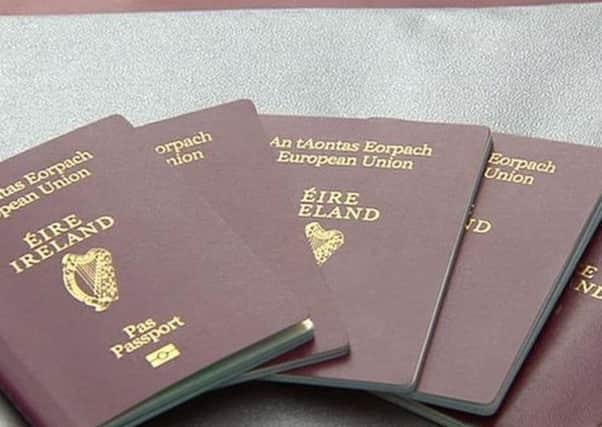Irish passport applications from NI surge


The figures were released by the Department of Foreign Affairs in Dublin after a written query by Fianna Fail TD Niall Collins.
In 2012, there were 41,124 applications for Irish passports from Northern Ireland.
This year, there were 85,810 as of October 31.
Advertisement
Hide AdAdvertisement
Hide AdIn 2012, the number of applications from Great Britain was 45,646 and in 2018 it was 73,583.
There was a sharp increase in applications between 2016, when the UK voted to leave the European Union, and 2017.
In 2016 there were 67,582 applications from Northern Ireland and 63,453 from Great Britain. The following year, the figures were 82,274 and 80,752 respectively.
Over the entire six year period from 2012 to 2018, there were 422,472 applications for an Irish passport by people in Northern Ireland, and 395,553 from people living in Great Britain.
Advertisement
Hide AdAdvertisement
Hide AdNiall Collins, his party’s foreign affairs apokesperson, said the increase in applications was “evidence of the impact of Brexit on the thinking of many members of the Irish diaspora living in Great Britain, and I suspect of many unionists living in Northern Ireland who want to retain their citizenship of the European Union.”
He added: “Having an Irish passport has always been a prized possession for many people. However, I think its value has increased considerably since the decision of the UK to leave the European Union in 2016.
“It will be interesting to note the number of applications for Irish passports after the UK officially leaves the Union at the end of March 2019. The full ramifications of what leaving the Union, and in particular giving up the automatic right to free movement across the EU, means may only become apparent when reality bites.”
Mr Collins continued: “Earlier this year, we saw major delays for some people applying for new passports. The Department of Foreign Affairs and the Passport Office need to have the necessary staff in place to ensure that any further increases in applications do not cause further delays and waiting times.”